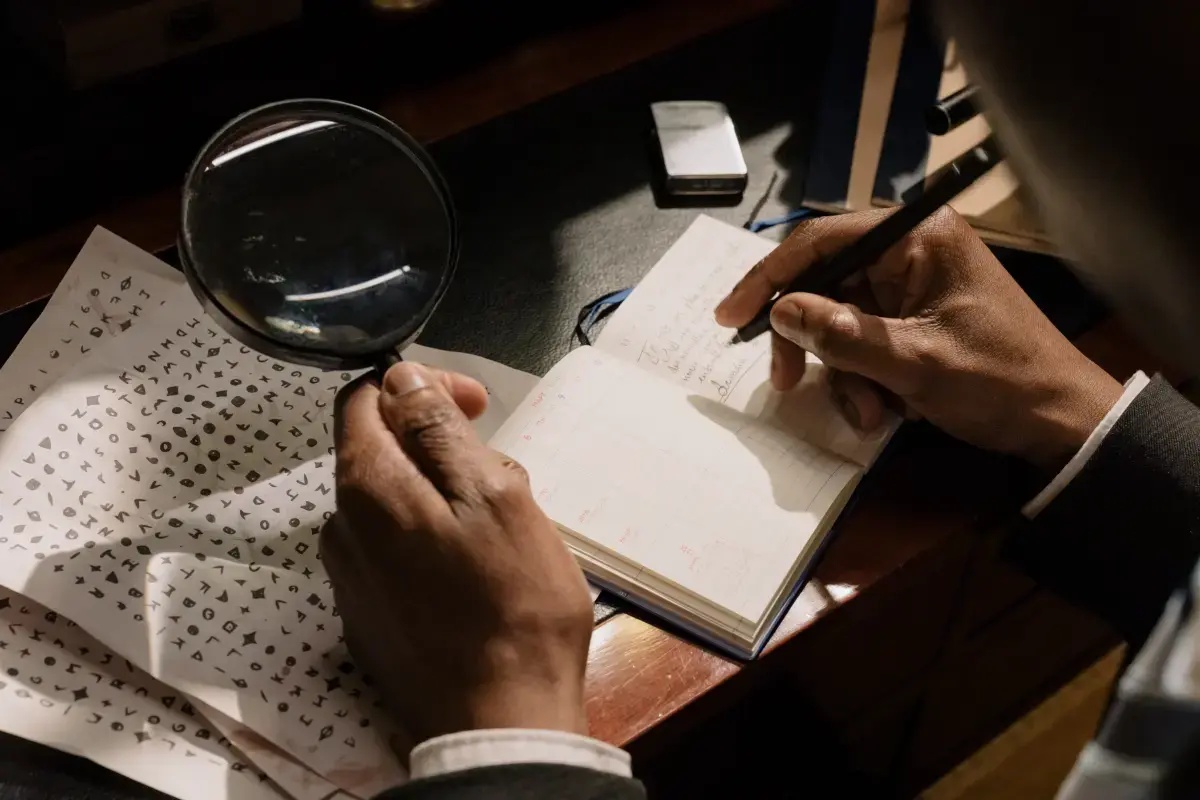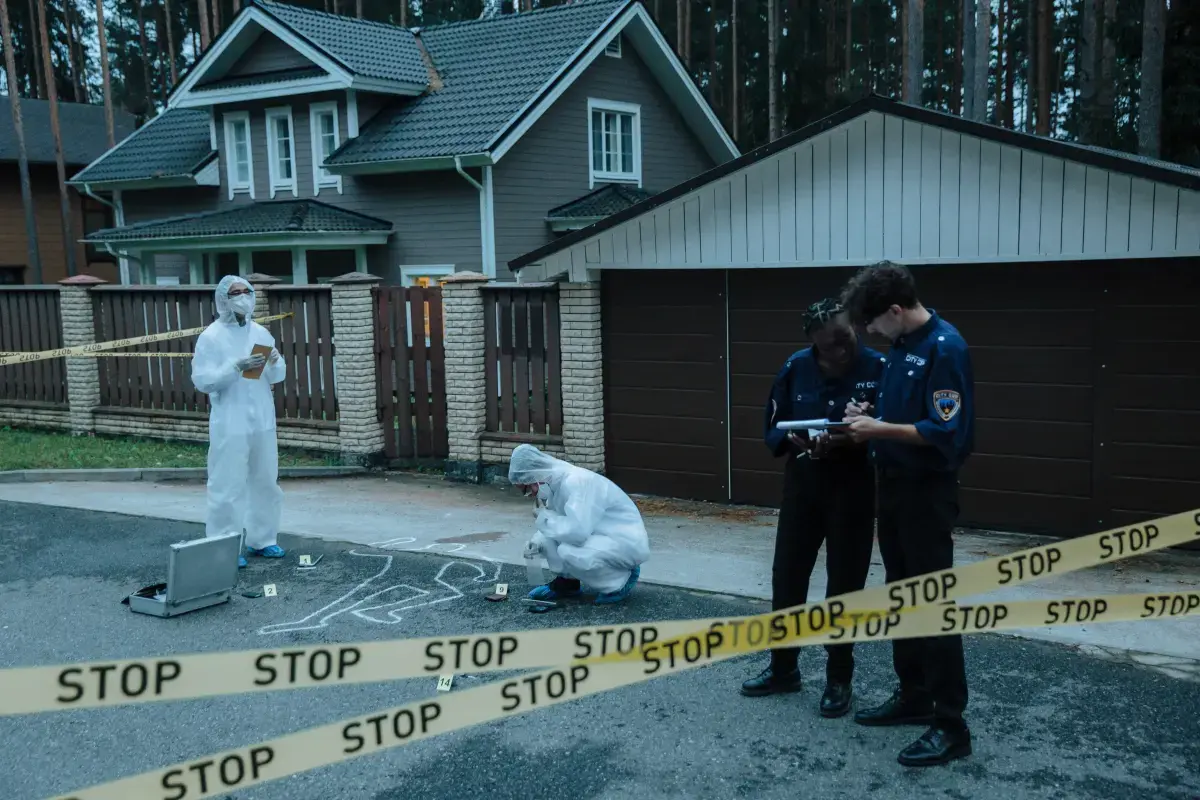
Private Investigator Job Description
What is a Private Investigator Professional?
A private investigator, also called a PI or private detective, is someone who carries out an investigation into a person or company on behalf of another person or organisation. The role of a private investigator can vary greatly depending on who they are working for and what the investigation entails

What does a Private Investigator Expert do?
However, there are some key tasks that a private investigator will typically carry out in their job: Conducting background checks – This may involve checking someone’s criminal history, financial records or anything else that could be relevant to the case. Surveillance – This involves following the subject of an investigation and recording their movements in order to gather evidence. Interviewing witnesses – A PI may need to speak to people who have information relevant to the case in order to get more details about what happened. Collecting evidence – This could involve taking photographs, collecting CCTV footage or anything else that could be useful in proving guilt or innocence

What are the Skills of a Private Investigator?
Private investigators, also known as private detectives, perform a variety of duties that typically involve investigating suspect persons or activities, conducting surveillance, and collecting evidence. In most cases, these professionals work for law firms, insurance companies, or private individuals. Many times they are hired to uncover information for use in civil or criminal litigation. Some private investigators also specialize in providing security consulting services. The skills and experience necessary to be successful as a private investigator vary depending on the nature of the case being worked on and the type of investigative services being provided

What makes an Expert Private Investigator?
There are some essential skills and qualities that all good private investigators share. These include: - Good observational skills: Private investigators must be able to pay close attention to their surroundings and notice details that others might miss. This includes things like body language cues, facial expressions, and other small clues that can help reveal what someone is really thinking or feeling. -Excellent verbal and written communication skills: Private investigators need to be able to communicate clearly and concisely both verbally and in writing. This includes being able to write detailed reports documenting their findings during an investigation. They also need strong interpersonal communication skills in order to interview witnesses and suspects effectively. -Creativity: Private investigators often have to think outside the box when trying to solve a case. This requires them to come up with innovative solutions to problems and utilize creative thinking strategies such as brainstorming ideas with colleagues. -Good research skills: Conducting thorough research is crucial for any private investigator working on a case. This involves using online databases as well as more traditional methods such as visiting libraries or government offices. Skilled researchers know how to find relevant information quickly and efficiently without getting bogged down by irrelevant data sources

What level of Experience & Qualifications are required to be a Private Investigator?
Industry Experience: 1. At least 5 years of private investigation and legal research experience, including surveillance, interviewing and report writing. 2. Knowledge of surveillance techniques, local laws regarding investigatory processes and evidence collection procedures. 3. Demonstrated ability to effectively establish proper relationships with clients as well as police officers, attorneys or other legal representatives during investigations when necessary. 4. Proven success in a variety of investigative settings such as civil disputes and criminal proceedings implicating fraud or criminal misconduct matters. Training: 1.. Certification from a recognized investigative agency specializing in either civil or criminal investigations is preferred but not required for some positions 2.. Completion of local law enforcement academy programs is beneficial for some specialties within the field such as computer forensics or undercover operations 3.. Participation in specialized workshops providing insight into particular areas related to the profession oftentimes assists investigators increase their level of expertise 4.. Continued education in a broad range topics related to investigation provides experienced operators the access they need gain new knowledge while maintaining familiarity with current trends Qualifications: 1.. Excellent communication skills both verbally and written 2.. The ability to remain professional while dealing with people who may be hostile 3.. Discretion; investigators must be able prevent sensitive information becoming known outside sources 4 Animosity towards rule breaking activities without prejudice against individuals Education: Bachelors degree (or equivalent) from an accredited college/university is typically required for this position although some employers may accept experience gained through prior service instead

What is the Salary of a Private Investigator?
At the entry level, a private investigator typically earns between $30,000 and $45,000 per year. As they gain experience in investigations and establish relationships with clients and other stakeholders in the investigative community, their salaries tend to increase steadily until they reach an average of $60,000 to $80,000. Senior investigators can earn more based on their experience in criminal investigations or specialized areas such as computer forensics or fraud investigations. A lead investigator may make upwards of $100,000 annually depending on demand for their services and expertise. For independent contractors with sufficient experience who provide expert testimony or conduct private inquiries for high profile clients the rate can easily exceed six figures annually.

What are the Working Conditions for a Private Investigator?
Private investigators (PIs) generally work in a variety of settings, including their own offices, clients homes or businesses, outdoors and even sometimes out of state. PIs typically work on a freelance basis, which potentially gives them the flexibility to set their work hours. That said, most PIs must be available for nighttime and weekend assignments as well as during normal business hours to meet with clients or conduct investigations. The job itself can involve being physically active with tasks such as covert operations requiring surveillance activities that require watching from an outdoor vehicle for long periods of time or conducting interviews and searches that may require travelling to other locations. Although much of the job is conducted through research on computers or investigative meetings at client locations behind-the-scenes investigation is also common with this line of work making it important for PIs to use tactful discretion when conducting investigations. Dress code usually requires formal attire; however clothing appropriate for assignments such as shabby clothes necessary if undercover operation is part of PI’s duty also expected depending on particular investigator/client agreement over scope and type assignment itself. it is important to note while acceptable pay rate will depend largely on region where private investigator conducts his business but general rule held by most states in country recommends minimum hourly charges – typically ranging from 15$ up 75$ per hour depending amount experience individual has established himself among community practitioners With many experienced investigators charging rates up 120$ per hour

What are the roles and responsibilities of a Private Investigator?
Conducting surveillance
Gathering information through interviews and public records searches
Taking photographs or videos
Keeping detailed notes and logs
Engaging in undercover work
Check peoples backgrounds
Run surveillance on a person suspected of cheating
Investigate computer crimes
Probe into criminal activities
Detect missing persons
Discreetly following someone
Searching for a person who owes you money
Tracking down long-lost relatives
Checking out potential employees
Investigating possible insurance fraud
researching civil cases
unmasking an anonymous emailer or blogger
infiltrating groups or organizations
stakeouts 20 working with law enforcement

Where can I find Private Investigator jobs?
- Create a profile on gigexchange and promote your Private Investigator skills to advertise you are Open to New Work Opportunities
- Ensure your Resume (or CV), or online work profile is up to date and represents your skills and experience. Ensure your reputation reflects your ability & attitude.
- Apply for Private Investigator Jobs advertised on gigexchange.
- Practise Private Investigator interview techniques to ensure you represent your personality and ability succinctly and confidently.
- Accept the job offer if the salary meets your expectations and the employer mission and purpose reflects your core values.
Jobs
What are the best job boards for PI jobs?

How can I hire Private Investigator staff online for my business?
The best job board for recruiting Private Investigator experts is gigexchange.com. Advertise full-time, part-time or contract jobs to find, hire & recruit trusted, experienced and talented Private Investigator candidates near you.

Are Private Investigator roles in demand in 2026?
Private Investigator experts are still in high demand in 2026. If you are an experienced Private Investigator or looking to train and become one. The job market is looking strong for Private Investigator jobs near me.